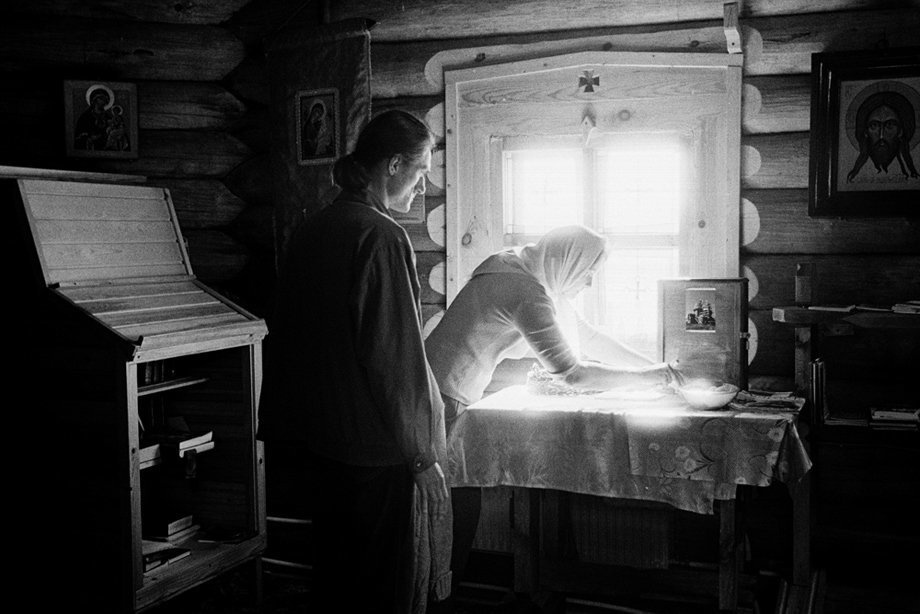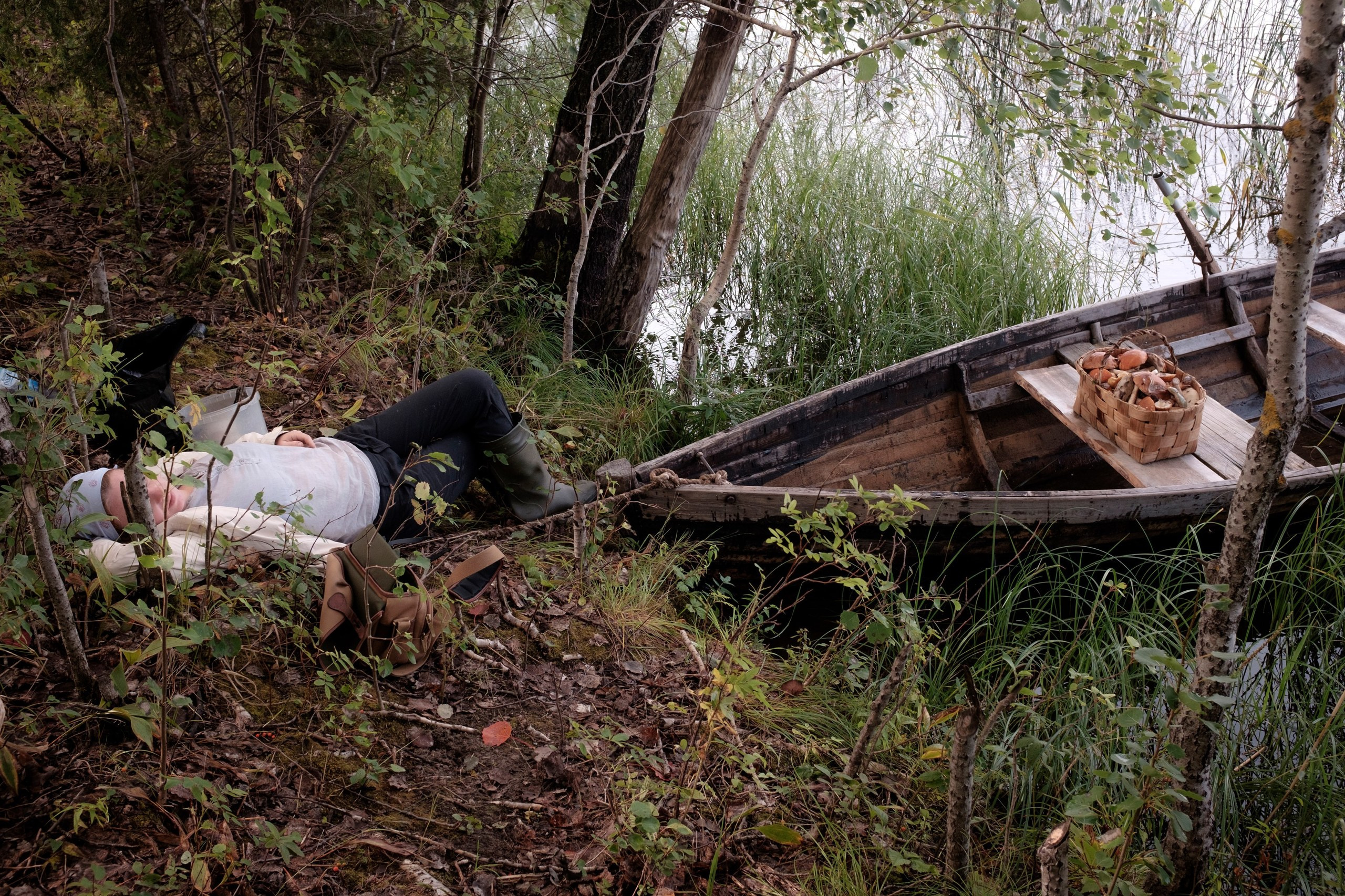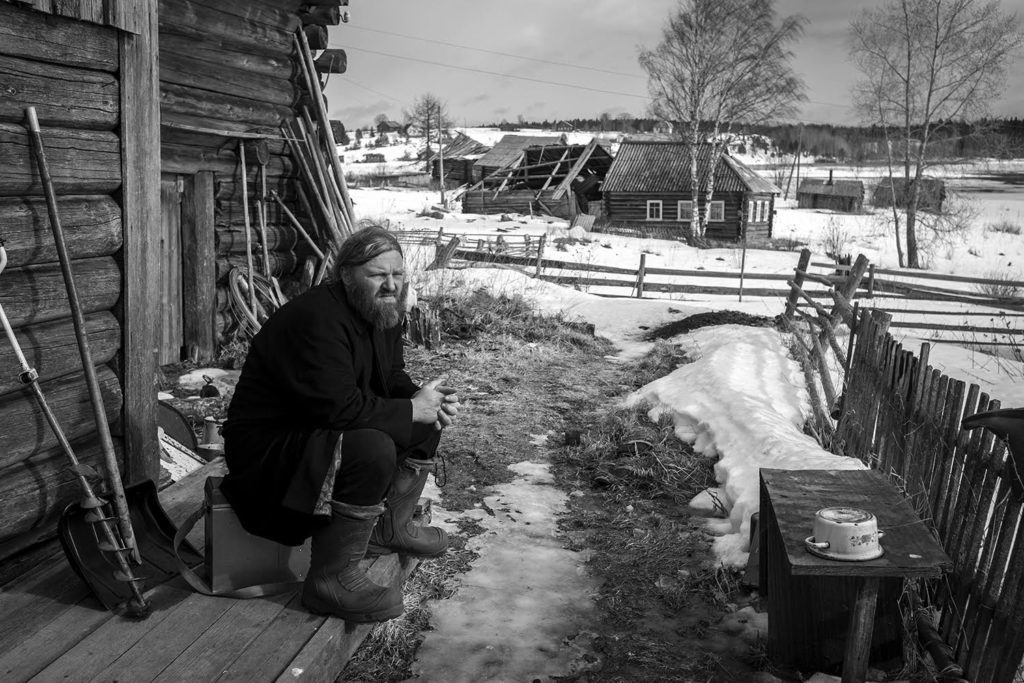May 22, 2018
Anyone overwhelmed by city life, work or family, knows the fantasy of escaping to a distant and simple place where life unfolds according to the seasons. The siren song can beckon louder than the noise that’s left behind.
That temptation attracted Ekaterina Solovieva when she first traveled in 2009 to Kolodozero, a remote lake town in northwestern Russia. A native of a small city outside of Moscow, she had recently moved to Hamburg, Germany, with a small child, another one on the way, and without any chance of employment. She went there with her husband, who was studying there, but she did not know the language and was surrounded by the constant buzz of a new city, its people and culture.
Her decision to travel to Kolodozero was a much-needed break, even if she didn’t know what to expect. But she had been drawn there by the story of Father Arkady, an Orthodox priest with decidedly unorthodox manner.
Father Arkady was a “punk” priest, whom she described as wearing “a torn T-shirt, with sawdust in the beard and with a burning gaze.” He had gone there shortly after finishing seminary studies in 2000 to search for life’s meaning along with two other big-city friends. Though rife with alcoholism, the town — with one school, a library, a post office, three shops and a farm — enticed him and was a needed break from his native Tallinn, Estonia’s largest city and capital. The priest and his friends rebuilt an old church that had burned down and started inviting the locals to services.
“It was important for me to understand what drives a man seeking solitude, running away from the world,” Ms. Solovieva said.
She was also interested in the younger generations who have embraced faith as a reaction to the history of antireligious campaigns under the Soviet Union’s communist rule. “For 80 years, the country was living with the ideology of God-fighting and atheism,” she explained. “Leninist and Stalinist rules were consistently destroying the best representatives of Russian clergy. In the 1990s, after the collapse of U.S.S.R., the spiritual life in Russia began its revival.”
It was not difficult for Ms. Solovieva to settle into the village. “In a couple of years I was already going with a tractor to collect cranberries, checking fishing nets at the neighboring lake and bringing a neighbor with my car to pick strawberries,” she said. “During all this I was listening and trying to remember their stories about Kolodozero life and Farther Arkady.”
Yet, as she grew to understand the situation further, it became clear that things were not as they seemed. “The locals were complaining to me, ‘The father drinks, that’s why we don’t go to his church!’” said Ms. Solovieva. “‘But you drink yourself,’ I replied. ‘He is a priest, he should be better than us,’ was their answer.”
As she watched Father Arkady’s decline, her fantasy that this quaint place might save her from her life in Germany faded.
“Slowly, I began realizing that living in the northern Russian province is not a fairy tale, that the mere existence there is possible only through hard everyday labor,” she said. “My attitude to the whole story also started to drift. Farther Arkady’s everyday deeds and his solitude, even though hidden behind carelessness and gaiety, became more and more clear to me.”
If anything, those revelations were a premonition of something that was inevitable: Father Arkady’s funeral, earlier this year.
“While he was on vacation, some people with a criminal background settled down in his house,” Ms. Solovieva said. “They were drinking vodka there for a few days. One day, a local man, Yurka, went in the house. He had a conflict with the strangers and they killed him. Beat him to death with some heavy object. For Arkady it was a very heavy strike. He returned from the vacation, washed Yurka’s blood off the walls, and died.”
Her tale of this quest for escape and an elusive tranquillity was turned into a book, “The Earth’s Circle,” which was recently published by Schilt. It is a tale of unexpected transformations: Father Arkady’s and her own.
“I started this story being an excited girl in a fairy tale,” she said. “I finished it being a wise person, that had understood the depth of Father Arkady’s exploits. He abandoned his habitual city life for the solitude of a Karelian village. I went all the way from a superficial travel photographer to a documentarist that created a book about the unrealized hopes of a particular Orthodox priest.”
Source: The New Yourk Times
News

Die Zeit: Der Punk als Priester

Pietro Daprano, ArtPalmBeach 2020 Artistic Director, interviews artist Ekaterin…
